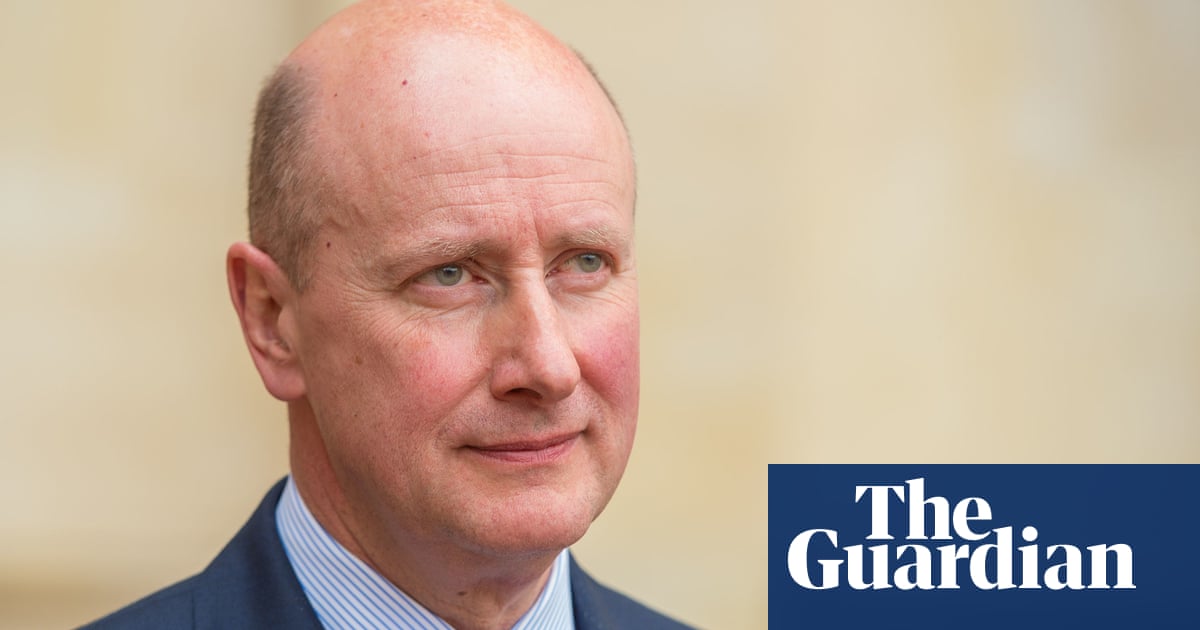
It is a cliche that the hardest job in politics is being the leader of the opposition – but when a vacancy at the heart of the government went unfilled for five months, Labour insiders joked that it was, instead, the role of Boris Johnson’s ethics adviser.
An awkward hole in the prime minister’s team had been created after the departure in November 2020 of Alex Allen, who quit as the adviser on ministerial interests after No 10 brushed aside his report accusing the home secretary, Priti Patel, of bullying.
As the wait for a replacement dragged on, stories swirled about a scandal that became dubbed “cash for curtains”; evidence dripped out about Johnson using a Conservative donor to help cover the costs of an apparent £200,000 makeover of his Downing Street flat.
Whoever would inherit Allen’s role knew the issue would be top of their in-tray, and an immediate test of their temerity.
Waiting in the wings was Christopher Geidt, a former private secretary to the Queen for 10 years.
Coaxing him to accept the job took weeks, insiders said, with the cabinet secretary, Simon Case, having to be roped in to persuade a man with a seemingly unblemished record of public service to put his reputation on the line.
Little was known about Lord Geidt – who, in one of the only public recordings of him, described himself as “what is known as ‘one of those men in suits’”. But he was quickly thrust into the public eye with the weighty task of adjudicating on whether Johnson had lied about his knowledge of the decoration payments.
In his report published one month later in May 2021, Geidt gave Johnson the benefit of the doubt, saying Johnson knew nothing about “either the fact or the method of the costs”.
In a comment that would return to haunt him, Geidt said he had spoken to Johnson and been assured he “knew nothing about such payments” until the media reports began.
After a relatively quiet further six months in the job, Geidt’s reputation suffered a severe knockback when it emerged that Johnson and the donor had in fact exchanged texts about the funds.
It only emerged via a more rigorous investigation by the Electoral Commission, which fined the Conservative party for failing to disclose the payments, and left Geidt red-faced.
Pressure grew for Geidt to reopen his investigation, and he acquiesced. It was almost the least of Johnson’s worries, however, as the prime minister was also fending off accusations about Covid law-breaking parties.
Despite the hopes of opposition MPs that Geidt would reprimand Johnson for refusing to hand over the texts, news broke over the new year that the prime minister was to be cleared.
Geidt had not actually reopened his investigation and instead published an exchange of letters that mildly criticised “unwise” decisions and a “deficiency in the standards” for his investigation.
When the news leaked that Johnson was to be cleared days before the official announcement, Geidt was furious. “He was not pleased with that, it’s fair to say,” one source said, with others briefing that he had to be talked out of resignation.
What seemed to convince him to stay on was an assurance from Johnson that he would consider Geidt’s proposals for beefing up the ethics adviser role.
Among other requests, Geidt had asked for a bigger team of officials and the “highest standards of openness, including full and prompt responses to requests for information from ministers, special advisers and officials”.
Detailed proposals from No 10 were promised, with calls also growing for Geidt to be able to launch investigations himself, given the possible conflict of interest in that power remaining in the hands of a prime minister who had faced investigation himself.
That power never materialised, and Geidt kept quiet while the Metropolitan police and Sue Gray inquiries progressed.
When the two Partygate investigations ended and Johnson had been fined for attending a birthday gathering in defiance of strict lockdown laws, Geidt forced the prime minister to publicly address why he should not be investigated for breaking the ministerial code. Given that the code enshrines the need for honesty, integrity and leadership, Geidt was determined that Johnson should state publicly how he had lived up to those principles.
In a move that further enraged Geidt, Johnson blamed a “a failure of communication between our offices” for not having realised that his ethics adviser wanted him to account for his actions.
Whitehall sources said that given he was probably aware of the significance his resignation would have, Geidt may have refused to resign at a moment of maximum danger for Johnson – when 41% of Tory MPs voted to declare they had no confidence in the prime minister.
Nerves were eased when Geidt gave a characteristically meek performance before a parliamentary committee on Tuesday.
But after what was said to be a night of “soul searching”, he shocked the Cabinet Office and No 10 utterly by resigning just over a year into the job.
In the end, Geidt said, his decision to quit was triggered by Johnson seeking to break the ministerial code with a plan to extend steel tariffs, in defiance of World Trade Organization rules.
An official who worked with Geidt noted: “It may be a convenient hill to die on, or the straw that broke the camel’s back, or perhaps both are true.”












